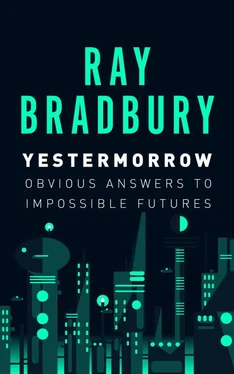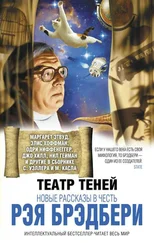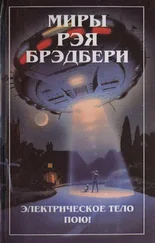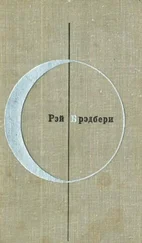Sorry about those last two terms, which have been overused to the point of madness the last few years.
But, there are still snobs in the world, and I must give you weapons to fight them with. There still are people who will come up to you and say: Science fiction? Ha! Why read that ?!
The most direct, off-putting reply is: Science fiction is the most important fiction ever invented by writers. It saw the whole mob of troubles pouring toward us across the shoals of time and cried, “Head for the hills, the dam is broke!” But no one listened. Now, people have pricked up their ears, and opened their eyes.
For, above all, science fiction, as far back as Plato trying to figure out a proper society, has always been a fable teacher of morality, saying: If you cut down trees, plant new ones. If you invent a pill what will you do with your religious concepts and structures? If your medicines allow people to grow old, what will you do with your old people? If you put people to sleep for five hundred years and wake them up, what then? Madness?
All of the above statements are science fictional. There is no large problem in the world this afternoon that is not a science-fictional problem.
The problem of war and world politics is the problem of the hydrogen bomb and the fact that as a teacher of Christian principles the Bomb has, sotto voce , suggested to politicians that war is no longer an extension of politics. All that has been short-circuited by the Bomb. Politics is now an extension of war. The old rules have been reversed. The old men, tired of arguing, willing to blow each other up, have been sent back to the table for yet another round of conversation. Grand, great, good, swell!
Which doesn’t rule out small wars, of course, but the big ones, for the time being, are stashed in the basement. The difference between large and small is important here. Any reduction is welcome. Hundreds of thousands of people were killed in Vietnam, but compared to the fifty million or more destroyed in a short five years in World War II, we can only be thankful that the giant Death has been dissolved down to pygmy size. And, under the shadow of the Bomb, the larger nations, even as I write this, move closer together, fused by mutual fears, instead of separated by selfish antagonisms, all because of a science-fictional invention, which was always impossible, and would never be invented: nuclear fission.
For you see, all the things that have happened to us, were never going to happen.
Good people said so. Nice people thought so.
But the science-fiction writers always knew otherwise. They could see that locomotive coming down the track, changing the face of the Civil War. They could see multitudinous inventions, shaping and reshaping mankind and thus shaking the very foundations of churches and synagogues around the world.
Science fiction then is the fiction of revolutions. Revolutions in time, space, medicine, travel, and thought. It is the fiction of the moralist who shakes his hand at us and says: Behave or I pull the switch! It is the fiction of the writer-theologian who shows man the mirror image of God in himself and promises him a real and true heaven if he gets off his ape-hunkers and fires himself into a new Genesis-orbit around the Moon and then on into the abyss dark.
Above all, science fiction is the fiction of warm-blooded human men and women sometimes elevated and sometimes crushed by their machines. Given tape recorders, “what do I do?” a man cries out. Given bugging devices and computers, “what next?” he asks again. Given television and movies and radio and records—a veritable Tower of Electronic Babel, where lies my sanity? Be still, stand among trees, green yourself, says science fiction.
I remember with what happiness, years ago (to the jeers of strangers), I predicted that if the philosopher Bertrand Russell ever wrote fiction it would be science fiction. When Lord Russell finally published two collections of stories, in the fifties, they were predominantly fictions of ideas, which is to say science fictions.
We are all of us, today, fourth-grade philosophers. We are all of us writers, in our minds, of science fictions, for we are being forced to deal with the problems of the ten thousand million machines, the robots that surround us, talk to us, move us. We must have answers so we speak in tongues, and the tongues are always, always, always science fiction. If your problems are metal and electricity, your answers must be run up out of the same stuffs. We move from simplicity to complexity to simplicity again. The history of radio is the history of mankind illustrated in a brief 53 year span: We began with cat’s-whisker crystal radios, expanded to ten-dial, maniac-complex devices, which drove men mad in 1928, and on around back to wrist watch-size radios in 1973. We will watch the same history repeated as small towns become mad supercities, collapse, die, and turn back to new small towns as we rebirth ourselves at the end of this century.
Plato’s name has been mentioned. You may well, in exasperation, demand why? Because in many ways I consider his Republic to be one of the earliest forms of science fiction. Whenever man tries to guess at an ethical/political concept, he is, in effect, oiling a machine, hopeful after controlling other men and giving them new freedoms by such control as will allow them to live in peace. So science fiction, we now see, is interested in more than sciences, more than machines. That more is always men and women and children themselves, how they behave, how they hope to behave. Science fiction is apprehensive of future modes of behavior as well as future constructions of metal. Democracy is a science-fictional concept trying to dream itself to birth with every generation. Any philosophy which does not exist but tries to exist, is by this definition science fiction. Politics is an inept science, God knows, but a science nevertheless, to which we are trying to fit keys and open hearts and souls.
Again, science fiction guesses at sciences before they are sprung out of the brows of thinking men and women. More, the authors in the field try to guess at machines, which are the fruit of those sciences. Then we try to guess at how mankind will react to those machines, how it will use them, grow with them, and how it will be destroyed by them.
All, all of it fantastic. All, all of it, the story of mankind and inventions, men and machines that step on God’s toes and now, late in the day, say Beg Pardon. To which the Universe says: That’s all right, go build Eden again. Build it on Earth. Build it on the Moon. Build it on out beyond our unreachable solar system; but build it, live in it, take root in it, survive.
1974
On some morning in the year 2484, five hundred incredible years from now, a family named Peregrine, a good name for far-traveling folks, will bound out of bed on the Moon or Mars, or farther out on some colonial pod circling Alpha Centauri, and ask themselves what to do On Vacation.
Home, might be the answer. Home meaning, of course, Earth, where we all started from. The Seedbed Vacation, it might well be called.
Let’s go back, someone suggests, to see what’s left of it. See what we did wrong and then did right.
No, let’s not, half the family argues. There’s nobody left there, only a few genetic retards, so why go back? There are other planets we can visit first. On each one we’ll find something like Earth. Let’s see the other worlds first. After that—maybe—Earth.
So the Peregrines board their Leapfrogs. Leapfrogs? Yes, that is what they might call their fast-as-the-speed-of-light spaceships. Once aboard, they would blast off on not a short vacation at all. It would be a long haul spanning many years, making landfall at impossible places with incredible climates.
Читать дальше











